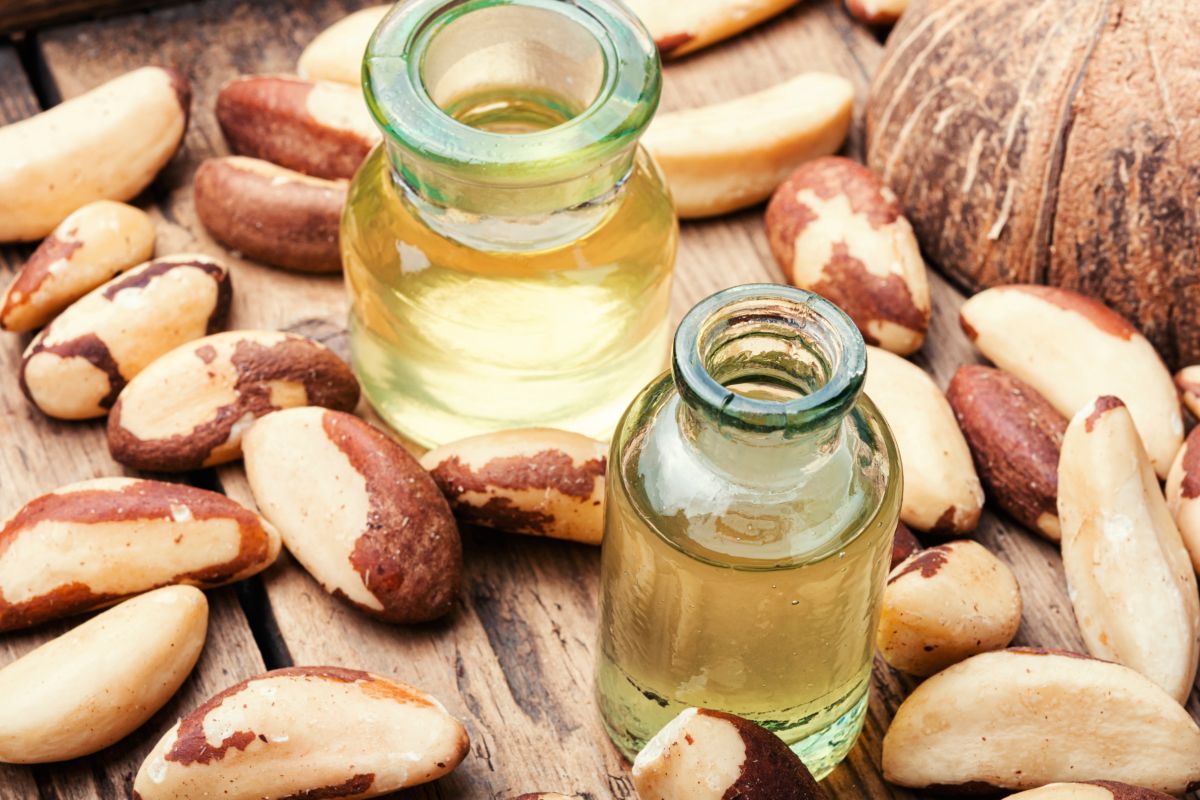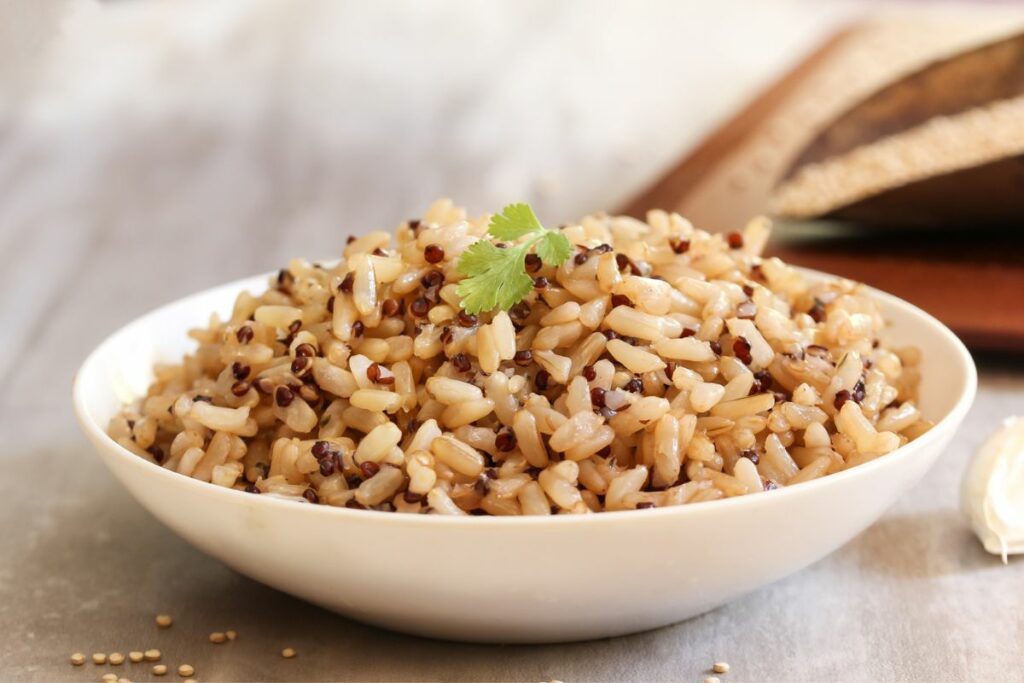It’s safe to say that there is a lot of disagreement around what we should and shouldn’t eat, especially when it comes to inflammatory foods. It seems like there’s a new diet every day, and simple healthy ingredients can get lost in the conversation.
However, there is no doubt that diets full of whole foods like fruits, veggies, and whole grains and low in processed foods is the right call.
As well as giving your body plenty of essential nutrients, one of the main benefits of these foods is that they can decrease inflammation overall.
In our article, we’ll take a look at if brown rice is anti-inflammatory, and what foods you should seek out or avoid to combat inflammation. But let’s first take a look at what inflammation is.
What Is Inflammation?
Inflammation is how your body protects you from irritants such as bacteria, chemicals, pollutants and splinters. When you hurt yourself, some inflammation can be helpful and lets your body repair itself.
Still, too much inflammation is a problem. Chronic inflammation can be caused by poor exercise habits, lack of sleep, poor diet, and stress, and can lead to digestive issues, illness, and injury.
Controlling your inflammation will keep your body in good condition, aid in healing, and prevent disease.
Are Whole Grain Starches Anti-Inflammatory?
Whole grains – like brown rice – have many health benefits, but one of the most notable benefits is that they’re packed with fiber.
Fiber plays a massive part in decreasing the inflammation in your body and keeping your digestive system in good condition.
If you like whole grains and want to know which ones you should incorporate into your anti-inflammatory diet, then you can’t go wrong with brown rice! Barley, buckwheat, bulgur, millet, oatmeal and whole grain wheat bread are also great options.
What Else Should You Eat On An Anti-Inflammatory Diet?
Wild Salmon
Wild salmon is full of omega-3 fatty acids, and while you can get these from flax and walnuts, omega-3 in fish is a lot more bioavailable. The omega-3 in wild salmon has been found to improve your brain and heart health and reduce inflammation.
Prunes
Prunes are unassuming but rich in nutrition! Research has shown that eating prunes regularly can promote good bone health and gut health. This is because they contain polyphenols that may have anti-inflammatory properties.
Broccoli
Cruciferous vegetables such as broccoli are superstars in the world of anti-inflammatory foods.
Broccoli has sulforaphane, which is a phytochemical that is believed to have properties that could prevent cancer as well as anti-inflammatory properties to fight chronic inflammation.
Veggies like broccoli are full of sulfur and undergo two detox phases in the liver, which encourages your body to create more enzymes that can decrease inflammation. We recommend roasting or sautéing broccoli, or chopping it up into a salad.
Ginger
Ginger does a lot more than add flavor to your food! It’s actually a super beneficial component of an anti-inflammatory diet.
It is believed to have pain-relieving properties, and its benefits can be found in its anti-inflammatory properties like generals and shogaols.
Grapes
Add grapes to a parfait or smoothie in the morning, or freeze seedless grapes for a truly healthy, guilt-free dessert. Some studies believe that grapes may also prevent inflammation.
The polyphenols found in grapes are also linked to reduced inflammation. Plus, no color is healthier than the other! Green, red, and black grapes have the same health benefits.
Turmeric
Turmeric is an anti-inflammatory spice that can be added to smoothies, soups, or stir-fries. It is full of very powerful anti-inflammatory compounds.
Chia Seeds
Chia seeds are not just for chia pudding! They make a delicious, crunchy mix for energy bars and smoothie bowls.
Chia seeds are famous for their antioxidant properties, and are an amazing source of omega-3 fatty acids, dietary fiber, and protein.
Brazil Nuts

Another tasty food for an anti-inflammatory diet are Brazil nuts. They are a natural source of selenium, which is a nutrient that keeps your immune system in a good condition.
As supplements tend to be unregulated, it’s best to get selenium straight from the source – like Brazil nuts!
Avocado
Just like nuts, avocados are also full of healthy monounsaturated fatty acids that play a huge role in keeping inflammation levels low.
Avocados also contain plenty of fiber, a nutrient famous for keeping your gut microbiome healthy! This makes it one of the best foods to incorporate into your anti-inflammatory diet.
You can add fresh avocado to salads, whole-grain sandwiches, and even whip it up into a surprisingly tasty plant-based chocolate mousse!
What Shouldn’t You Eat In An Anti-Inflammatory Diet?
Double Cheeseburgers
Lowering saturated-fat intake is linked to a lowered risk of heart disease, since a standard double cheeseburger with mayonnaise has 23 grams of saturated fat. In the Dietary Inflammatory Index, saturated fat has a score of 0.37.
Lower your intake of saturated fat to under 10% of your daily calories. So for example, if you eat 2,000 calories a day, then you should only eat 22 grams of saturated fat.
Baked Goods
Pastries are considered a triple whammy – they’re full of refined flour, sugar, and unhealthy fats that boost inflammation. One of the biggest red flags in baked goods are cinnamon rolls, with typical varieties you can buy in a food court containing 17 grams of saturated fat and 58 grams of sugar.
White Rice
White rice causes blood sugar to increase more quickly than whole-grain rice, and this can trigger pro-inflammatory compounds called cytokines. Therefore, you should choose white rice over brown rice when you can.
Reducing refined grains helps slow down the inflammatory process by lowering the body’s insulin response and decreasing the risk of conditions like psoriasis and eczema.
What Should You Drink For An Anti-Inflammatory Diet?
Green Tea
This soothing drink is packed with antioxidants that are very beneficial for your health, so it makes sense to add it to your anti-inflammatory diet. This tea is linked to an increased risk of Alzheimer’s disease, cavities, and heart disease.
Green tea has an overall anti-inflammatory effect with a score of -0.56 on the Dietary Inflammatory Index. Anti-inflammatory foods have a negative score under zero, while pro-inflammatory foods have a positive score over zero.
What Shouldn’t You Drink For An Anti-Inflammatory Diet?
Alcohol
According to the 2015-2020 Dietary Guidelines for Americans, you should drink alcohol in moderation. This means limiting yourself to 1 drink a day if you’re a woman, and 2 drinks a day if you’re a man. But what qualifies as a drink?
One drink equals 12 fluid ounces of beer, 1.5 fluid ounces of alcoholic beverages like rum or vodka, and 5 fluid ounces of wine. Drinking excessive alcohol can lead to inflammation, particularly of the liver that metabolizes alcohol.
If you like to kick back with a glass of wine or a bottle of beer on the weekend, then think about reducing your alcohol intake to lower the risk of inflammation.
Final Thoughts
Brown rice is not only anti-inflammatory, but is a great addition to an anti-inflammatory diet, particularly over white rice that can actually make inflammation worse. We hope our article has clarified what you should opt for in an anti-inflammatory diet, and what you should avoid!








